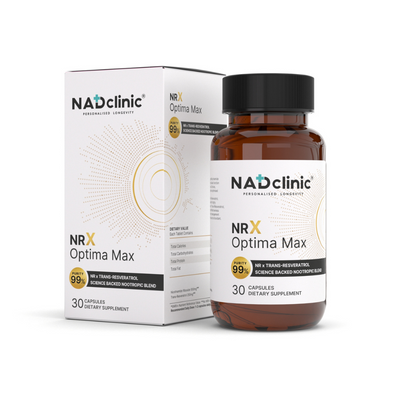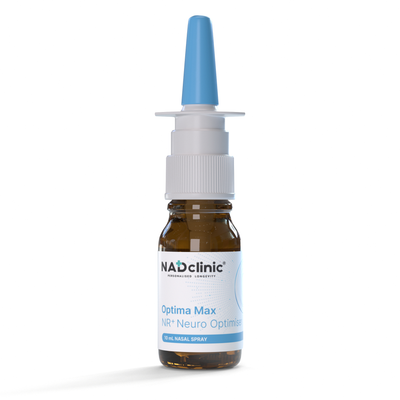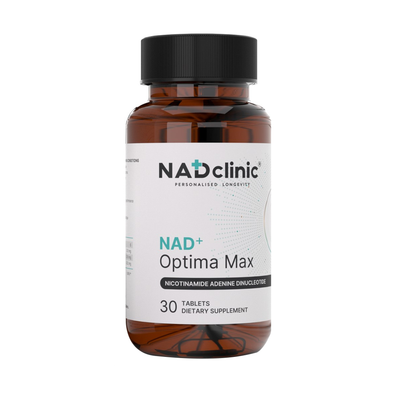Struggling to lose weight, even when you're doing all the “right” things? You're certainly not alone.
More and more people are finding weight loss more difficult than ever before. But that doesn’t mean you’re doing something wrong, it just means your body and environment have changed.
Modern lifestyle stressors, ageing and metabolic shifts are just some of the many barriers to your weight loss journey, but with a deeper understanding of what’s going on at the cellular level, and the right kind of support, sustainable weight loss is absolutely within reach. Let’s explore.
Why Is Weight Loss Harder Than It Used to Be?
-
We Move Less
Most of us sit too much. Long hours at desks and screens mean fewer daily calories burned, even with a healthy diet. -
Stress Is Constant
Chronic stress raises cortisol levels, which can lead to fat storage, cravings and slower weight loss. -
Sleep Suffers
Poor-quality rest disrupts our hunger hormones and metabolism, making it harder to lose fat and control appetite. -
Metabolism Slows
Years of crash diets or under-eating can lead to long-term metabolic slowdown, making your body hold on to fat. -
Hormones Shift
As we age, hormonal changes affect fat storage, blood sugar regulation and energy levels — all key to weight loss.
If this feels familiar, your body isn't broken, it's just adapting to the environment many of us live in. This is where taking a more direct, cellular approach can help.
How Can NAD⁺ Support Weight Loss?
NAD⁺ (nicotinamide adenine dinucleotide) is a coenzyme found in every cell of the body. It’s crucial for converting food into energy and powering the mitochondria — the “batteries” that keep your metabolism running.
But NAD⁺ levels naturally decline with age, exacerbated by stress, poor diet and lack of sleep. When these levels drop, so does your metabolic efficiency — meaning your body burns fewer calories, stores more fat and produces less energy.
Here’s how supporting NAD⁺ levels may help with weight loss:
-
Boosts Mitochondrial Function
NAD⁺ helps mitochondria break down carbohydrates and fats into usable energy (ATP). Better energy output means more fat burned. -
Supports Fat Oxidation
Increased NAD⁺ can upregulate enzymes involved in lipolysis (fat breakdown), making it easier for the body to access stored fat. -
Enhances Insulin Sensitivity
By improving how your cells use glucose, NAD⁺ may help stabilise blood sugar levels, reduces cravings and fat storage. -
Reduces Inflammation
Chronic, low-grade inflammation has been linked to weight gain and metabolic dysfunction. NAD⁺ activates enzymes like sirtuins that reduce oxidative stress and support cellular repair. -
Improves Energy and Focus
When your cells have more NAD⁺, you feel more energised and mentally clear, making it easier to stay consistent with healthy routines like exercise and clean eating. -
May Support Appetite Regulation
Emerging studies suggest NAD⁺ plays a role in the hypothalamus — a part of the brain that regulates energy metabolism and circadian rhythm.
In short, NAD⁺ won’t burn fat for you. But it can help your body do what it’s designed to do way more efficiently.
Takeaway
With a couple of lifestyle changes and a dedicated effort to ramping up your NAD⁺ levels, your desired weight loss could be just around the corner. Alongside regular movement, better sleep, stress relief and real, nutritious food, supporting your NAD⁺ levels can give your body the cellular tools it needs to unlock lasting progress.
Featured products
Discover our most popular items

NAD+ Levels Test Kit

NRx Optima Max

Optima Max - NR Nasal Spray

Optima Max - Gift Box Set
Read more

Low sex drive is more common than most of us think — and it doesn’t always have to do with age. Even physically healthy people can experience dips in libido due to stress, hormonal fluctuations, me...
READ MORE HERE
At NADclinic, we’re often asked one deceptively simple question: “How do I know that my NAD⁺ is of the purest, highest quality?” With the recent surge in NAD⁺ production in the wellness space, the ...
READ MORE HERE

